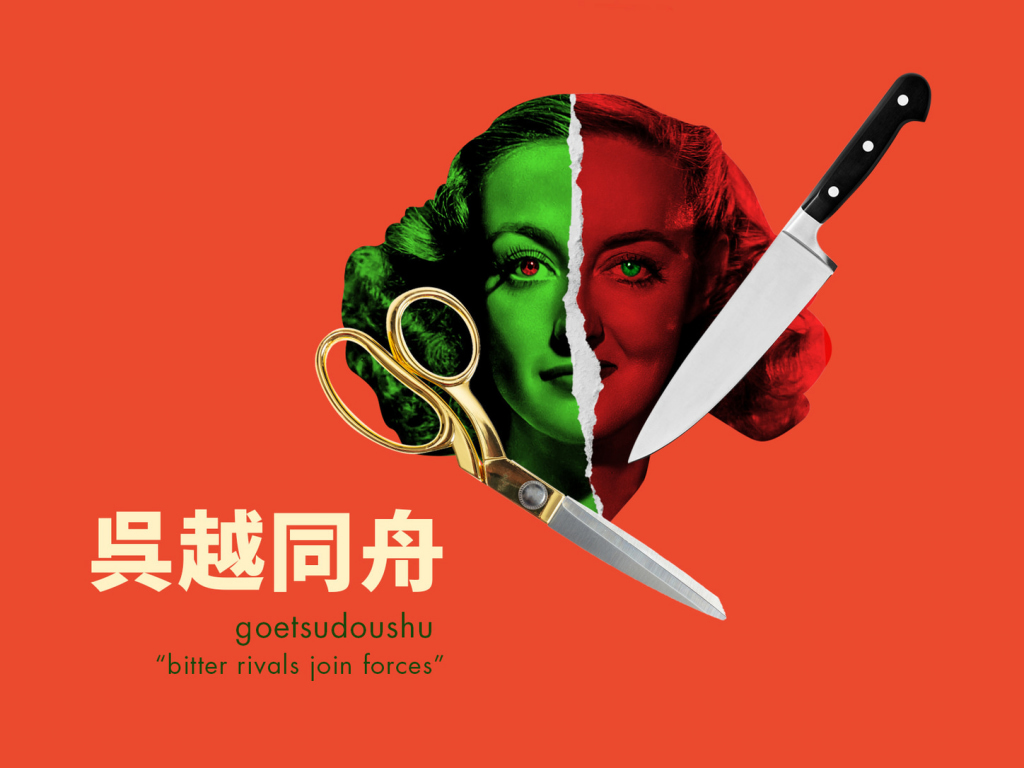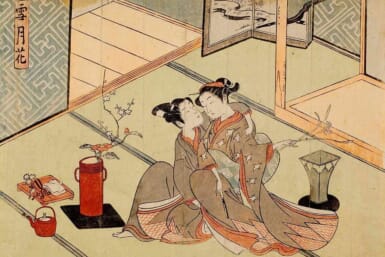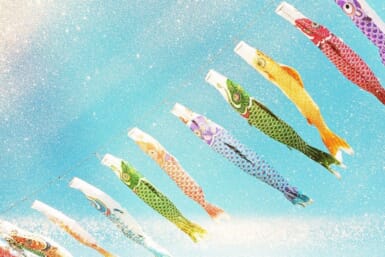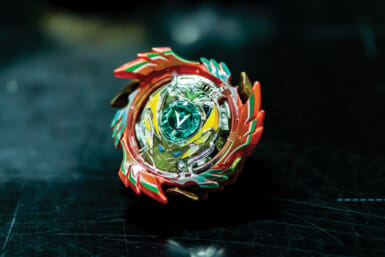Goetsudoushu: where bitter rivals are thrown together by fate and have to work together for the greater good. Books and movies across the world are riddled with nemesis team-ups and the “only one bed” situation is a romance trope that never seems to get old. What is it about people who hate each other being stuck in close quarters that never seem to get old? We don’t know the answer to that, but it’s a common enough issue to warrant a deep dive into where one version of it came from.
Goetsudoushu (呉越同舟)
Meaning: Bitter enemies in the same boat, rivals finding themselves together by chance, while the thunder lasted, two bad men were friends, fatal terrain forces unity.
Literal translation and kanji breakdown: The character pair goetsu (呉越) represents the ancient rival Chinese kingdoms of Wu and Yue. Doushu (同舟) means same boat. What does this mean? Read on to find out.
Goetsudoushu: The Origins
To get to the source of this yojijukugo we have to head back to China’s Spring and Autumn Period (771-476 BCE), when multiple vassal states were at war, all competing for supremacy.
Goetsudoushu describes an incident when people from longtime enemy states Wu and Yue were crossing a river together in one boat. A storm brewed, making the waters too treacherous to traverse without cooperation. Everyone banded together to ensure they all came out of it alive. Sun Tzu’s The Art of War references the story and it serves as a metaphor that implies that neither friendship nor enmity should ever be considered permanent.
Goetsusdoushu: Similar Expressions
- 一致団結 (Ichidanketsu): Solidarity, banding together for a common cause
- 大同団結 (Daidoudanketsu): merger, presenting a united front
- 共同戦線 (Kyoudousensen): A united front, a common front
- 昨日の敵は今日の友 (Kinou no teki wa kyou no tomo): Yesterday’s enemy is today’s friend
Using “goetsudoushu” in a sentence
Goetsudoushu is a fairly famous yojijukugo but isn’t always used in full sentences.
課長と部長は普段仲悪いけど、会社が危機となったとき、呉越同舟ということで協力した。(Kachou to buchou wa fudan nakawarui kedo, kaisha ga kiki to natta toki, goestudoushu to iu koto de kyouryoku shita.) Our section chief and the head of our department don’t get along, but when the company was in trouble they knew they were in the same boat and worked it out together.
あいつとは昔から仲が悪かったが、震災が起きたときは呉越同舟のようにお互い助け合った。(Aitsu to wa mukashi kara naka ga warukatta ga, shinsai ga okita toki wa goetsudoushu no you ni otagai tasukeatta.) We’ve never seen eye to eye, but when that natural disaster happened, we helped each other.
あの二人はいつも敵対視しているのに、プレゼンとなると呉越同舟で必ずチームワークを発揮する。(Ano futari wa itsumo tekitaishi shiteiru noni, purezen to naru to goetsudoushu de kanarazu chi-muwa-ku wo hakki suru.) Those two normally don’t get along but when it’s presentation time they show some stellar teamwork.
Want more? Follow our weekly Yojijukugo Japanese Idiom series, published every Friday. Learn the meaning of “chinpunkanpun” here, “yudan taiteki” here and “taifu-ikka” here.









